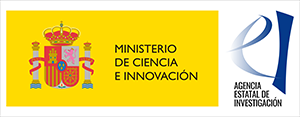The QURSA project addresses the design and proof of concept of an architecture and algorithms for quantum key distribution (QKD) over complex networks, and their integration with the classical Internet core and distribution infrastructures by means of an improved post-processing layer. For achieving an effective, seamless integration and maximize the adoption of quantum-based physical security across a diverse range of domains, we also propose to develop a novel bridge QKD endpoints, i.e., a set of physical equipment, part of the QKD network themselves, but located near the network edge to which end-users (individuals or firms) can bring their own devices to download and take away secure uncorrelated keys generated and distributed through the QKD network. As a complement, we propose the use of truly random quantum-generated keys as sources for the first general implementation of post-quantum cryptographic (PQC) signing and encryption algorithms. These PQ techniques are presently at the final stages of the standardization started by NIST in 2016, and the resulting PQC primitives will thus be embedded into the universal Internet carrier and signaling protocols (e.g., TLS/DTLS, HTTP, DNSSEC) guaranteeing security for network applications and their pervasive traffic. With this approach, the reach of quantum-safe security is stretched out to the bulk of Internet traffic by means of an evolutionary roadmap.
QURSA will adopt the well-known design principles of software-defined networking (SDN) for separation of the control, data and management planes of the QKD network, as the emerging technical standards in this field issued by ETSI and IETF-ITU advocate. The proposed proof of concept to bind together and test all the technical challenges in the project will be a pilot for demonstrating and testing the hybridization of quantumbased and quantum-safe communications on a managed open network, since in addition to the benefits of making QKD usable as a service, it showcases most of the features that will be faced in this research agenda: the creation and management of ultra-secure channels, the engineering of the composite quantum-classical network, an instantiation of quantum-safe Internet protocols, and a flexible distributed management system based on SDN principles. In addition to our equipment and background, we have engaged CESGA, CCN and INCIBE for supporting us in building and testing a feasible pilot.
Publicaciones
| Effects of experimental impairments on the security of continuous-variable quantum key distributionAndres Ruiz-Chamorro, Daniel Cano, Aida Garcia-Callejo, Veronica FernandezHeliyon, Volume 9, Issue 6, 2023, e16670https://doi.org/10.1016/j.heliyon.2023.e16670 | GiCSI |
| Futuros Estándares de la Criptografía PostcuánticaLuis Hernández EncinasCongreso Bienal de la Real Sociedad Matemática Española (RSME), Sesión especial de Criptografía, pág. 115, Pamplona, 23 de enero 2024 | GiCSI |
| Análisis comparativo de las firmas digitales postcuánticas basadas en retículosE. Iglesias Hernández, L. Hernández-Álvarez L. Hernández Encinas y J. I. Sánchez GarcíaActas de las IX Jornadas Nacionales de Investigación en Ciberseguridad (JNIC’2024), 2024, 404-411, Sevilla 27-29 mayo, 2024, ISBN: 978-84-09-62140-8https://idus.us.es/handle/11441/160623 | GiCSI |
| Ataques por canal lateral contra AES mediante correlación de consumo de potenciaM.A. González de la Torre, V. Sarasa Laborda, L. Hernández-Álvarez, I. Morales Sandoval, L. Hernández EncinasIX Jornadas Nacionales de Investigación en Ciberseguridad (JNIC’2024), 2024, 420-427, Sevilla 27-29 mayo, 2024, ISBN: 978-84-09-62140-8https://hdl.handle.net/11441/160773 | GiCSI |
| Structural analysis of Code-based Algorithms of the NIST Post-Quantum CallM. A. González de la Torre, L. Hernández Encinas and J. I. Sánchez GarcíaLogic Journal of the IGPLhttps://doi.org/10.1093/jigpal/jzae071 | GiCSI |
Congresos y reuniones, conferencias
| Analysis of the Crystals-Kyber ImplementationPresentación de póster Diego Rojas Rodríguez and Luis Hernández Encinas Meetings on Computer Algebra and Applications (EACA 2024), Satellite conference of the 9th European Congress of Mathematics (9ECM) Del 26 al 28 de junio de 2024, El Escorial, Madrid Puede descargar el póster haciendo clic aquí (917.58 KB) |
GiCSI |
| A visit to Pre-Quantum, Quantum, and Post-Quantum CryptographyConferencia plenaria Luis Hernández Encinas The 2024 International Conference on Advances in Computing Research (ACR'24) Del 3 al 5 de junio de 2024, Madrid, España. |
GiCSI |
| Transición de la criptografía precuántica a la postcuánticaConferencia invitada Luis Hernández Encinas Máster Universitario en Modelización Matemática. Universidad de Salamanca. 6 de mayo de 2024, Salamanca, España. |
GiCSI |
| Situación actual de la Criptografía PostcuánticaConferencia invitada Luis Hernández Encinas |
GiCSI |
| Futuros Estándares de la Criptografía PostcuánticaPresentación oral Luis Hernández Encinas Congreso Bienal de la Real Sociedad Matemática Española Del 22 al 26 de enero de 2024, Pamplona, España. |
GiCSI |
| Acerca del nuevo estándar de criptografía ligera, ASCONConferencia invitada L. Hernández Encinas y V. Sarasa Laborda XVII Jornadas de Seguridad TIC del CCN-CERT, Centro Criptológico Nacional, Centro Nacional de Inteligencia Del 28 al 30 de noviembre de 2023, Madrid, España. |
GiCSI |
| Pre-Quantum, Quantum and Post-Quantum CryptographyConferencia plenaria Luis Hernández Encinas IV National CyberLeague, Guardia Civil 16 de noviembre de 2022, Aranjuez (Madrid), España. |
GiCSI |
| La ciberseguridad como mecanismo para la protección de la informaciónConferencia invitada Luis Hernández Encinas 4º Simposio Internacional de Ingenierías, Universidad Vasco de Quiroga Octubre de 2022, Morelia (México) |
GiCSI |



